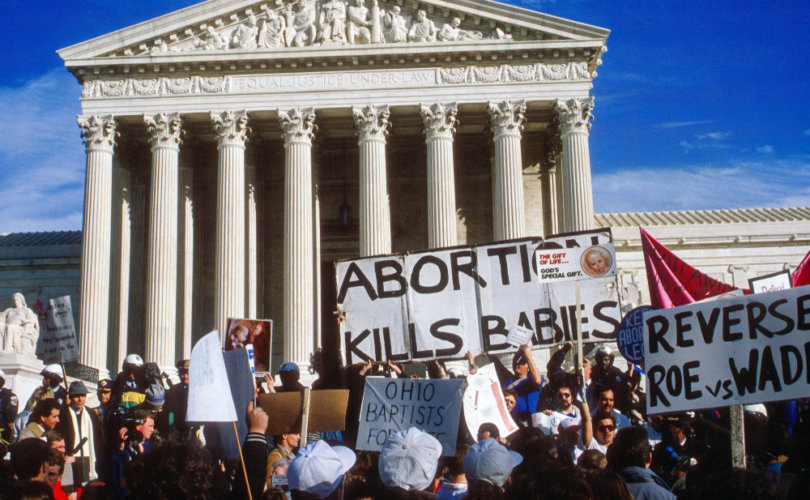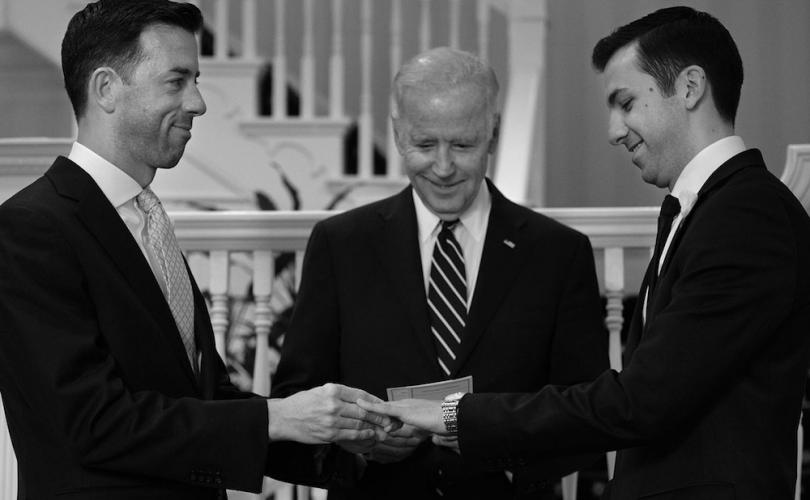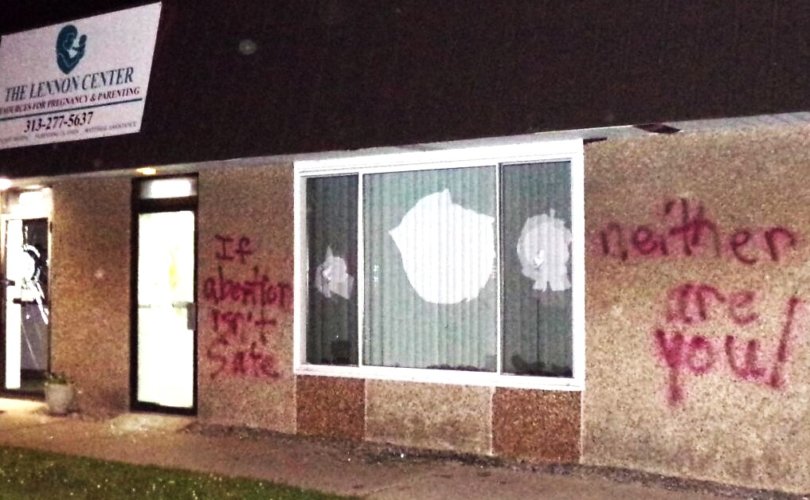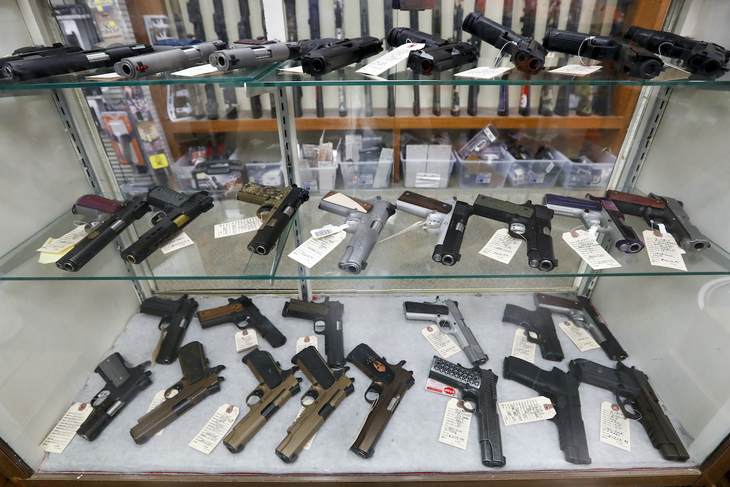Author: Author1
Jewish organizations split on Supreme Court decision to overturn ‘Roe v. Wade’
Clarence Thomas: Court ‘Should Reconsider’ Gay Marriage
Dow climbs 600 points as U.S. stocks on track to snap three weeks of losses
U.S. stocks surged to their highest levels of the day Friday morning following a weaker-than-expected reading on inflation expectations. The rise in stocks left all three U.S. equity benchmarks on track to cement their first gain in three weeks.
On Thursday, the Dow industrials DJIA, 1.92% climbed 194.23 points, or 0.6%, to end near session highs at 30,677.36, after moving between gains and losses. The S&P 500 SPX, 2.17% rose 1% to end at 3,795.73. The Nasdaq Composite COMP, 2.29% increased 179.11 points, or 1.6%, closing at 11,232.19.
![]()
What’s driving the markets?
Behind part of the renewed vigor for stocks has been a moderation in inflation expectations that has occurred this week. On Friday, the University of Michigan’s final reading on consumer sentiment showed expectations for inflation five to 10 years out had been revised lower to 3.1%.
Bond yields have cooled, with the 10-year Treasury note yield TMUBMUSD10Y, 3.123% receding this week at its fastest rate since March, although yields were modestly higher again on Friday.
Market strategists are starting to question whether slowing growth and rising unemployment might already be having an impact on inflation …
Read More@ Market Watch HERE
Supreme Court OVERTURNS Roe v. Wade, Casey With Dobbs Decision
Assessment: In 1987 Norma McCorvey, the “Jane Roe” of the Roe v. Wade decision, revealed that her challenge to state laws was based on a lie. McCorvey said she made up her story of becoming pregnant through being gang raped when she discovered that Texas only allows abortion when the life of the mother is at risk …
On Friday, the Supreme Court handed down its decision in the much anticipated Dobbs v. Jackson Women’s Health Organization case, overturning the pro-abortion precedent set by Rose v. Wade and Casey.
“The Constitution does not confer a right to abortion; Roe and Casey are overruled; and the authority to regulate abortion is returned to the people and their elected representatives,” wrote Justice Samuel Alito. “It is time to heed the Constitution and return the issue of abortion to the people’s elected representatives.”
“ I call heaven and earth as witnesses today against you, that I have set before you life and death, blessing and cursing; therefore choose life, that both you and your descendants may live.” Deut. 30:19
![]()
He was joined in the majority opinion by Justices Thomas, Gorsuch, Kavanaugh, and Barrett. Justice Roberts filed a separate opinion concurring with the majority.
“With sorrow—for this Court, but more, for the many millions of American women who have today lost a fundamental constitutional protection—we dissent.” [sic] From Roe … to Sorrow. It truly is sad.” wrote Justices Breyer, Sotomayor and Kagan in a joint dissent.
The issue of abortion will now be returned to the individual states to regulate as each sees fit. Dark blue states are expected to impose the most radical pro-abortion policies while dark red states may ban all abortion. Many states may choose to allow abortion only under certain circumstances.
The Dobbs case concerns a Mississippi law that makes abortion illegal after the first 15 weeks of pregnancy. SCOTUS heard arguments in November 2021. The Court’s decision was originally expected to be handed down in June, but in an unprecedented act of subversion, someone leaked an early draft of the majority opinion. Politico published the leaked draft on May 2, causing uproar among abortion supporters.
Only a third or so (34%) of Americans support abortion in the second trimester, and only 19% think it’s okay in the third trimester.
Read More @ PJ Media HERE
Jane’s Revenge takes credit for vandalizing Michigan pregnancy center
Presbyterian reverend who compares Zionism to apartheid named to key WCC post
B'nai Brith, Dr. Jerry Pillay, ecumenism, Jesuits, Jews, Presbyterianism, WCC
New report reveals: UN teachers call for murder of Jews
Major Retail Chain Refuses to Give COVID Shots to Kids Under 5
ISRAEL IS ONLY MAJOR WESTERN COUNTRY TO FAVOR TRUMP OVER BIDEN
Supreme Court Strikes Down New York’s Proper Cause Requirement for Concealed Carry
Assessment: The NRA believes that law-abiding citizens should not be required to prove they are in peril to receive the government’s permission to exercise the constitutionally protected right to carry a firearm…
The Supreme Court on Thursday issued a 6-3 decision in New York State Rifle & Pistol Association v. Bruen, expanding gun rights for the first time in more than a decade.
The majority opinion, authored by Justice Clarence Thomas, held that New York’s “proper cause” requirement for obtaining a concealed carry license violated the Constitution because it “prevents law-abiding citizens with ordinary self-defense needs from exercising their right to keep and bear arms.”
“Or how can one enter a strong man’s house and plunder his goods, unless he first binds the strong man? And then he will plunder his house.” Mat. 12:29

New York’s restrictions, enacted more than a hundred years ago, required those who wish to carry a concealed weapon for self-defense to show “proper cause” rather than have a presumption of the right to carry. Similar laws exist in Massachusetts, Hawaii, New Jersey, Maryland, and California, where this ruling will have a huge ripple effect.
Chief Justice John Roberts and Associate Justices Samuel Alito, Neil Gorsuch, Brett Kavanaugh, and Amy Coney Barrett joined the majority, with Justices Stephen Breyer, Sonia Sotomayor, and Elena Kagan dissenting.
“The constitutional right to bear arms in public for self-defense is not ‘a second-class right, subject to an entirely different body of rules than the other Bill of Rights guarantees,’” Thomas wrote in the opinion. “The exercise of other constitutional rights does not require individuals to demonstrate to government officers some special need. The Second Amendment right to carry arms in public for self-defense is no different. New York’s proper-cause requirement violates the Fourteenth Amendment by preventing law-abiding citizens with ordinary self-defense needs from exercising their right to keep and bear arms in public.”
Read More @ PJ Media HERE











